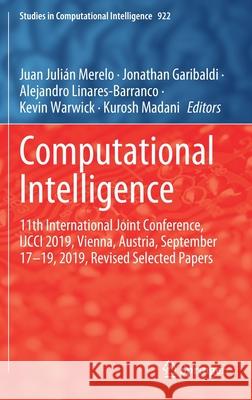Computational Intelligence: 11th International Joint Conference, Ijcci 2019, Vienna, Austria, September 17-19, 2019, Revised Selected Papers » książka
topmenu
Computational Intelligence: 11th International Joint Conference, Ijcci 2019, Vienna, Austria, September 17-19, 2019, Revised Selected Papers
ISBN-13: 9783030705930 / Angielski / Twarda / 2021 / 404 str.
Computational Intelligence: 11th International Joint Conference, Ijcci 2019, Vienna, Austria, September 17-19, 2019, Revised Selected Papers
ISBN-13: 9783030705930 / Angielski / Twarda / 2021 / 404 str.
cena 402,53
(netto: 383,36 VAT: 5%)
Najniższa cena z 30 dni: 385,52
(netto: 383,36 VAT: 5%)
Najniższa cena z 30 dni: 385,52
Termin realizacji zamówienia:
ok. 16-18 dni roboczych.
ok. 16-18 dni roboczych.
Darmowa dostawa!
Kategorie:
Kategorie BISAC:
Wydawca:
Springer
Seria wydawnicza:
Język:
Angielski
ISBN-13:
9783030705930
Rok wydania:
2021
Wydanie:
2021
Numer serii:
000318395
Ilość stron:
404
Waga:
0.76 kg
Wymiary:
23.39 x 15.6 x 2.39
Oprawa:
Twarda
Wolumenów:
01
Dodatkowe informacje:
Wydanie ilustrowane











